The Totem

The Baltic, German and Slavic gods resemble the Norse pantheon. Totems can be found everywhere dotted around the countryside and in the architecture. A pagan undercurrent flows through the area’s history. It is neatly captured in the sculpted head of a woman which appears on a Jugenstil (German Art Nouveau) building in Riga, Latvia. Riga features a number of amazing architectural images like this one.
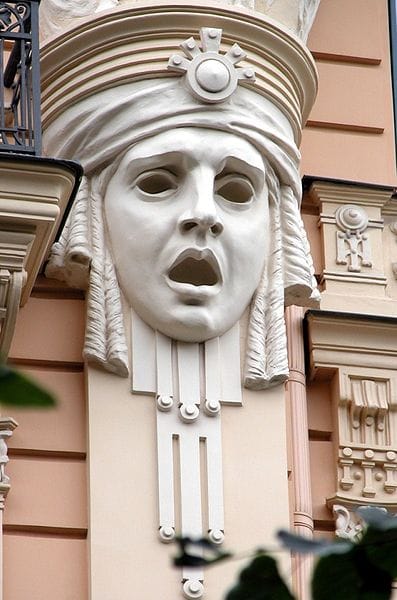
It reminds me a little of the totems of the Slavic god Svetovid (aka Svantevit), who is shown in the image below, from Teterower See, a lake in eastern Germany. Svetovid has four faces that look in the directions of the compass: his northern face is white (as in Byelorus, the White Sea), his western face is red, his southern face is black (toward the Black Sea) and his eastern face green. I mimicked that design in this chapter.
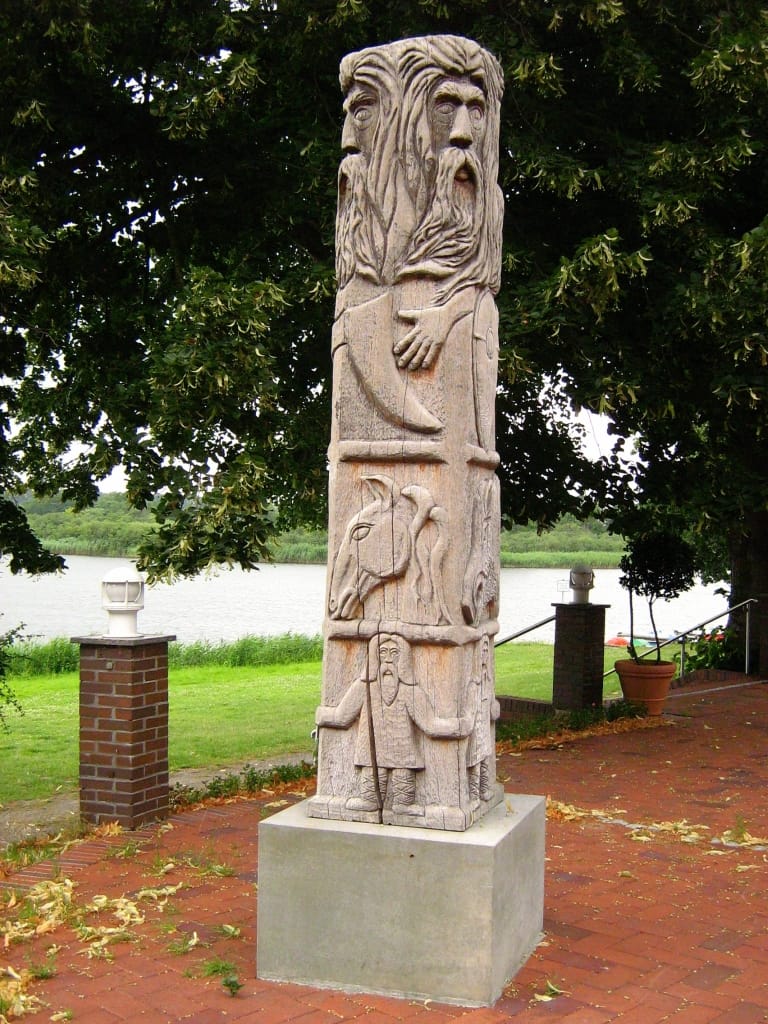
The Odin-like figure below is a Rübezahl, a mountain spirit from German folklore whose origins go back to pagan times. He was photographed in the Riesengebirge (Giant Mountains), to mention just the German name.
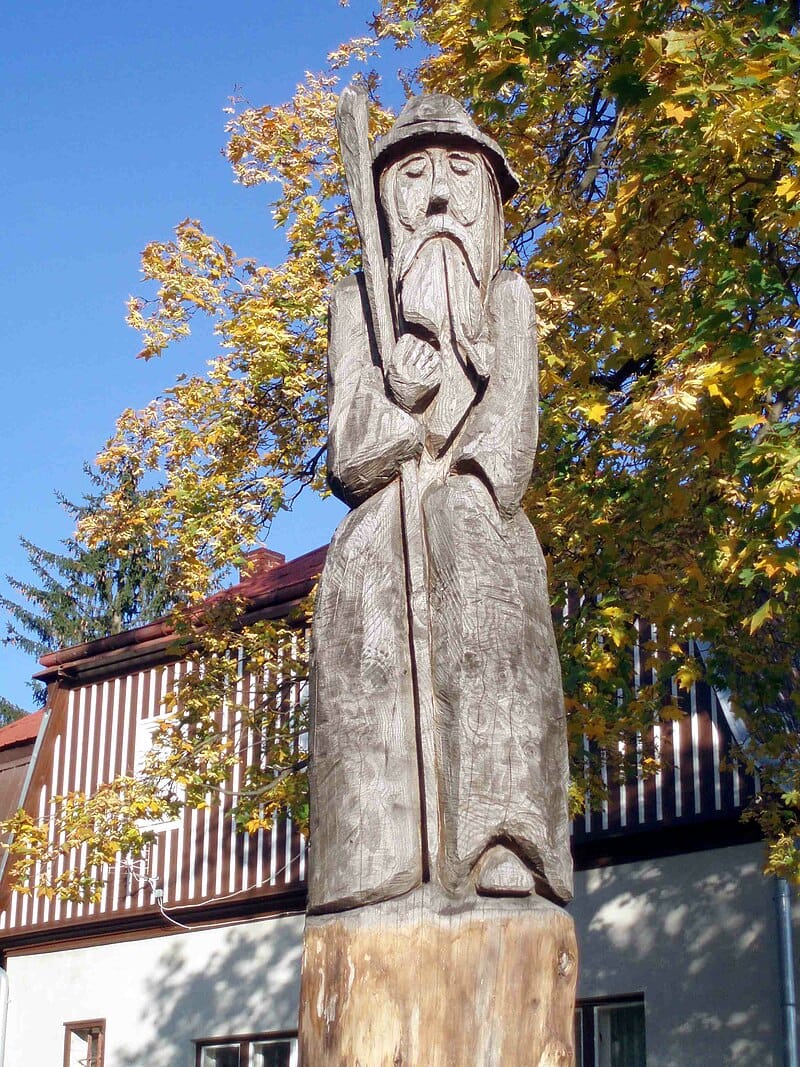
The writer best known for reviving totems and giving them a life in literature is Günter Grass. He revives the Baltic Perkunos, Pikollos and Potrimpos in his novel Dog Years, which is set in Danzig (now Gdansk, Poland) and in The Flounder (Der Butt), a sprawling novel from 1978, he has a talking flounder, a totem-as-oracle. The flounder discourses on life on the Baltic coast through the centuries by way of cooking and the nefarious battle of the sexes. It's whimsical and magical and leisurely - qualities that are not endearing to those who prefer the more brutal Danzig Trilogy, which began with The Tin Drum (1959) and concluded with Dog Years (1963).
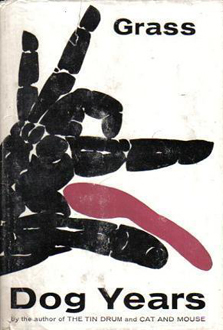
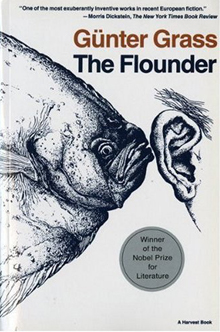
In his memoir of 2006, Peeling the Onion, Grass muses on his failure to ask questions when he was growing up in Danzig, when an uncle was taken away and executed, even when World War II was well underway: "...was it because I was no longer a child that I dared not ask? Is it only children who, as in fairy tales, ask the right questions? Can it have been the fear of an answer that would turn my world upside down that made me hold my tongue?"
The onion too is a totem.
